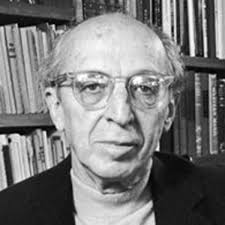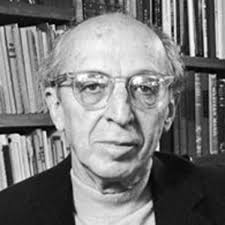 Aaron Copland (1900-1990) was an American composer, teacher, writer, and conductor of his own and other American music. Copland has been referred to as “the Dean of American Composers” because he has brought forth a style that sounds distinctly American. His open, slowly changing harmonies evoke the pioneer spirit.
Aaron Copland (1900-1990) was an American composer, teacher, writer, and conductor of his own and other American music. Copland has been referred to as “the Dean of American Composers” because he has brought forth a style that sounds distinctly American. His open, slowly changing harmonies evoke the pioneer spirit.
His best known works were written in the 1930-1940s in a purposefully accessible style referred to as “populist” and which he labeled as “vernacular” style. Works in this realm include the ballets Appalachian Spring, Billy the Kid, and Rodeo; his Fanfare for the Common Man; and his Third Symphony. He also worked in many other genres including chamber music, vocal works, opera, and film scores.
Rodeo is a ballet that Copland had composed which premiered in 1942 and was choreographed by Agnes de Mille. This was the beginning of her success as a choreographer, gaining her worldwide acclaim.
Rodeo is the story of a tomboy in search of love. This cowgirl character is based on de Mille herself as a young woman – a misfit among those in her community. The ballet consists of five sections: “Buckaroo Holiday,” “Corral Nocturne,” “Ranch House Party,” “Saturday Night Waltz,” and the ever-popular “Hoe-Down”.
Rodeo is considered to be one of the earliest examples of a truly American ballet – it combines elements of Broadway musicals with the discipline of classical ballet. Rodeo is a celebration of the spirit of true American character.
Text taken from the LIVS archives.
Included is a video of a performance of “Hoe-Down” by the Neponset Valley Philharmonic Orchestra.



Leave a comment